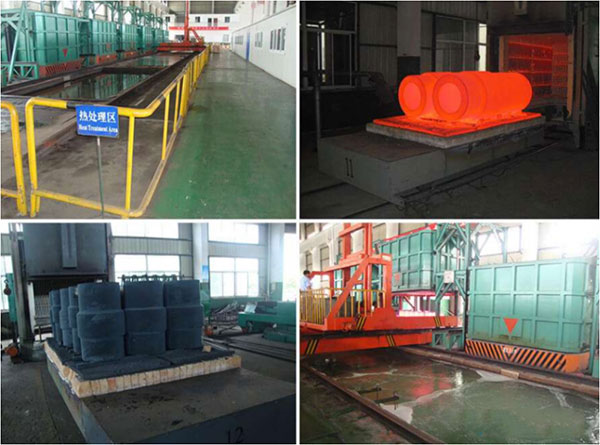The influence of die heat meter treatment technology on the economy of forgings
Heat treatment is one of the indispensable important processes in forging die manufacturing process, which plays a decisive role in die life. According to the requirements of specific forging technology, the heat treatment technology is designed to make the strength (hardness) of the mould match properly with toughness, the surface hardness of the mould body and the mould bore is reasonable and uniform, the grain is fine and uniform, there is no oxidation and decarburization, reduce the residual stress and deformation, which can improve the life and stability of the mould. The application of new heat treatment technology can tap the material potential and greatly improve the mold life at a small cost. For example, for high-carbon cold forging dies, adopting low-temperature quenching to obtain more lat Martensite can improve toughness, reduce mold deformation and quenching crack, and thus improve mold life. Vacuum heat treatment has the advantages of no oxidation, decarburization, degassing, uniform heating and small deformation, which is also beneficial to improve the life of the die.
The effect of surface treatment on strengthening the surface of mould bore and increasing the life of mould is not only remarkable, but also low cost. Has been applied and has the potential applications of the mold surface of the reinforcement of bore surface treatment method has deformation (shot peening, extrusion and rolling, etc.) strengthening, surface phase transformation strengthening, the surface expansion strengthening and ion implantation strengthening, physical vapor deposition and surface modification technologies such as membrane technology such as chemical vapor deposition, and electrochemical deposition (electroplating) technology and thermal spraying coatings.
from:168 froging
